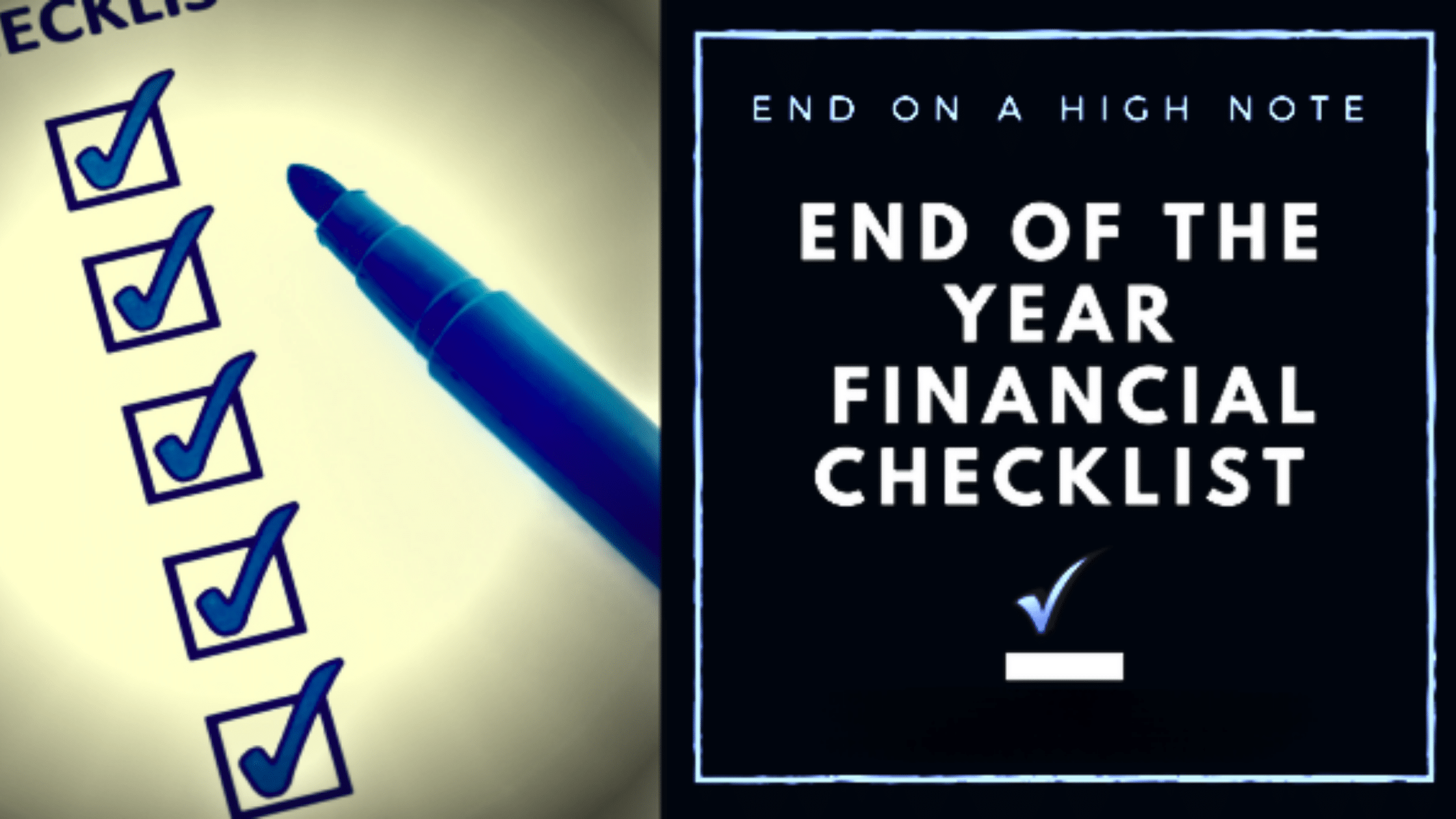
The final months of the year can be the busiest of all. Holiday happenings, family gatherings, and much more make this an exciting (and sometimes exhausting) time of year. With so much going on the temptation to push money matters off until later can be high, yet the end of the year is a fantastic time to get those in order. The end of the year is a smart time to review financial goals, strategies and planning for the New Year. Your social obligations during this time may be high so we have a simplified end-of-year financial checklist below:
Maximize my Employee Benefits
Many employers offer benefits packages for employees. These can include common benefits such as retirement and healthcare, or unique benefits like paid vacation travel. Many of these, when left unclaimed, will expire at the close of the calendar year. The end of the year is an appropriate time for taking advantage of untapped employer benefits before it’s too late.
401(k)
For those with a 401(k)-retirement plan through an employer, this is a great time to maximize matching company contributions. Many employers match employee payments to 401(k) plans as part of the benefits package. Don’t leave valuable benefits unclaimed! Additionally, 401(k) contributions directly reduce taxable wages, thus reducing your taxes due.
FSA/HSA accounts
Many employees have access to Flexible Spending Accounts through their employer. These accounts (also referred to as Health Savings Accounts) act as a pre-tax savings account for uninsurable medical expenses, co-pays and deductibles. These can be useful for dealing with the unexpected, but unused FSA funds will, for the most part, vanish on January 1st. The end of the year is the time to consider using leftover FSA and HSA funds.
For more information on 401(k) retirement contributions, FSA spending and other employer benefits speak to a representative from your human resources department or contact your financial advisor.
Review my Investment Portfolio
The holiday season is a good mile-marker for checking current investments to see what’s working and what needs improvement. Balancing winning investments and eliminating others helps create a solid financial platform for the following year. Unloading losing investments may help offset gains from other investments. Restrictions apply; speak to your advisor for more information on harvesting losses to reduce overall taxable income.
Make Tax-Deductible Donations
After maximizing contributions and massaging your investment portfolio, further reduce taxable income by donating to charity. Often, donations made to charity are tax deductible. This means money, property, and other assets donated to charity can help reduce annual taxable income. Donations must be made by the end of the year to qualify for deduction during the current tax year. While many charities operate altruistically, always thoroughly research charitable organizations before making contributions in any amount (see our previous blog post for more info).
Create an Emergency Fund
An account buffer, rainy-day fund, emergency savings account… Regardless of what you call it a savings account reserved for emergency spending helps create a protective financial buffer. The recommended amount will vary based on the individual but many experts agree: three to six months of expenses is a good amount to have in reserve. Creating a savings account can be challenging. Many people struggle to save a fraction of this, let alone the entire amount. When creating an emergency fund, increase deposits by:
- Eliminating unnecessary spending. Impulse buys, luxury goods, and other unnecessary purchases add up!
- Limiting necessary spending. Smart shopping can help reduce monthly expenses.
- Set a savings goal. Set a realistic savings goal and stick to it. A determined and regular deposit amount can help build a savings account quickly.
For those struggling to place money to the side, don’t panic. A financial advisor can help navigate personal and business finances to find creative ways to save.
Meet with My Financial Advisor
Schedule a meeting with a financial advisor to discuss strategies on how to help unlock your full savings and investment potential. Whether it’s your first meeting with an advisor or the tenth this year, an end-of-year financial review is a wonderful way to set and pursue your financial goals. Let’s talk about the financial future you want to create. Contact High Bluff Private Wealth today! Review current and future strategies with the goal to strengthen your investment portfolio and maximize tax incentives. End the year on a high note. To contact one of our Wealth Advisors, or for more topics affecting your wealth and savings potential, call (858) 792-7027 or visit OverlandShanahan.com.
The opinions voiced in this material are for general information only and are not intended to provide specific advice or recommendations for any individual.
This information is not intended to be a substitute for specific individualized tax advice. We suggest that you discuss your specific tax issues with a qualified tax advisor.
Rebalancing a portfolio may cause investors to incur tax liabilities and/or transaction costs and does not assure a profit or protect against a loss.





